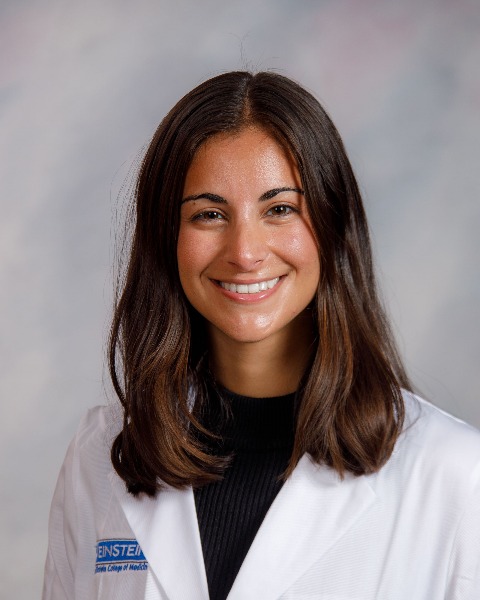Back
Background: Germline genetic testing is crucial for diagnosing and managing children with cancer predisposition syndromes (CPS). Many childhood cancer treatment centers have developed CPS programs that integrate pediatric geneticists, oncologists, genetic counselors, and mental health providers to support patients and families. However, multi-disciplinary childhood CPS programs with appropriate expertise are not always accessible to patients, which may lead to inequitable care. We hypothesize that healthcare providers without training in childhood CPS are less likely to utilize germline genetic testing in their practice.
Objective: Our objective is to assess knowledge and comfort among pediatric hem/onc providers regarding CPS. We developed a structured, anonymous online questionnaire based on a comprehensive literature review of CPS. The cross-sectional survey includes questions to assess and quantify knowledge about CPS, awareness and utilization of genetic testing and methods used, and comfort with disclosing genetic results.
Design/Methods: This study is approved by the Albert Einstein College of Medicine IRB. Our survey instrument was distributed via emails and academic listservs to pediatric hem/onc fellows and attendings across the United States starting on 10/31/24 and will be open for four weeks. We will capture demographic data, including location of practices. The survey will use basic techniques including five-point Likert scales, multiple-choice, open-ended questions, and clinical vignettes. Primary analysis will compare differences in proficiency and utilization of germline genetic testing between healthcare providers with and without training in CPS. Secondary analyses will further explore the association between the type of sub-specialty provider, years in practice, level of training, location, size of the institution, and existence of a cancer predisposition clinic at the institution with provider knowledge of CPS and utilization of germline genetic testing. Chi-square univariate analysis and multivariate logistic regression models will be employed.
Hematology/Oncology Works in Progress
Session: Hematology/Oncology Works in Progress
WIP 63 - Enhancing Care for Patients with Cancer Predisposition Syndromes: A Comprehensive Needs Assessment for Pediatric Hematology/Oncology Providers
Sunday, April 27, 2025
8:30am – 10:45am HST
Sofia F. Cataliotti, Albert Einstein College of Medicine, ROSLYN HEIGHTS, NY, United States; Zoe King, The Children's Hospital at Montefiore, SLEEPY HOLLOW, NY, United States; Rachel Offenbacher, Children's Hospital at Montefiore, Bronx, NY, United States; Aditi Dhir, University of Miami Leonard M. Miller School of Medicine, Miami, FL, United States; H. Dean Hosgood, ALBERT EINSTEIN COLLEGE OF MEDICINE, Bronx, NY, United States; Daniel A.. Weiser, Albert Einstein College of Medicine, Bronx, NY, United States

Sofia F. Cataliotti, BA (she/her/hers)
Medical Student
Albert Einstein College of Medicine
ROSLYN HEIGHTS, New York, United States
WIP Poster Presenter(s)
Background: Germline genetic testing is crucial for diagnosing and managing children with cancer predisposition syndromes (CPS). Many childhood cancer treatment centers have developed CPS programs that integrate pediatric geneticists, oncologists, genetic counselors, and mental health providers to support patients and families. However, multi-disciplinary childhood CPS programs with appropriate expertise are not always accessible to patients, which may lead to inequitable care. We hypothesize that healthcare providers without training in childhood CPS are less likely to utilize germline genetic testing in their practice.
Objective: Our objective is to assess knowledge and comfort among pediatric hem/onc providers regarding CPS. We developed a structured, anonymous online questionnaire based on a comprehensive literature review of CPS. The cross-sectional survey includes questions to assess and quantify knowledge about CPS, awareness and utilization of genetic testing and methods used, and comfort with disclosing genetic results.
Design/Methods: This study is approved by the Albert Einstein College of Medicine IRB. Our survey instrument was distributed via emails and academic listservs to pediatric hem/onc fellows and attendings across the United States starting on 10/31/24 and will be open for four weeks. We will capture demographic data, including location of practices. The survey will use basic techniques including five-point Likert scales, multiple-choice, open-ended questions, and clinical vignettes. Primary analysis will compare differences in proficiency and utilization of germline genetic testing between healthcare providers with and without training in CPS. Secondary analyses will further explore the association between the type of sub-specialty provider, years in practice, level of training, location, size of the institution, and existence of a cancer predisposition clinic at the institution with provider knowledge of CPS and utilization of germline genetic testing. Chi-square univariate analysis and multivariate logistic regression models will be employed.

